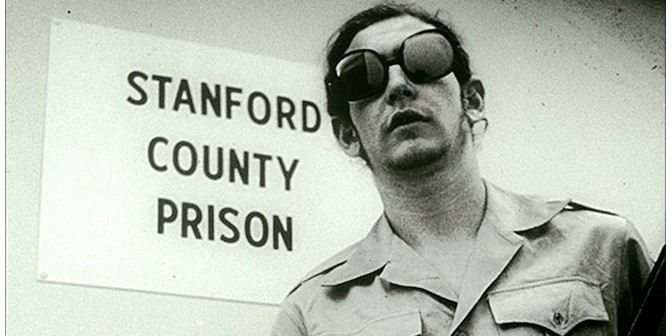(Photo courtesy of the Downtown Bend Library)
In the 1970s, an ambitious social psychologist wanted to examine the impact of prison settings on human behavior. This simple musing lead to birth of one of the most controversial psychology studies to date—The Stanford Prison Experiment—and launched the career of Dr. Philip Zimbardo.
“It is an interesting piece of history for the field of social psychology,” says Central Oregon Community College psychology professor Andria Woodell. “Many of the key players in the study are still living, so we have an opportunity to see how those involved reflect on the actual experience and how it has impacted their lives over time.”
Woodell will explore the Stanford Prison Experiment when she presents “Methods Behind Mayhem” at the Downtown Bend Library on November 3. Woodell will discuss Zimbardo’s study from inception to conclusion, some of the impacts it has had on the field of social psychology and those involved, and the importance of researchers keeping ethics at the forefront when researching human behavior.
“There has been a lot of progress toward establishing check and balances in experimentation that protect participants [in research studies],” says Woodell. She says her concerns about ethics in her field are more focused on fraudulent researchers who damage the public trust in science and create misinformation when they falsify data for personal gain. “It is disheartening,” she says, “but as an instructor I am training the next generation of researchers, so I have an opportunity to teach students the importance of ethics and to be wary of some of the pressures in the research field that can lead researchers to make bad choices.”
This talk is free and open to the public; no registration is required.
Dr. Andria Woodell is an Associate Professor of Psychology at Central Oregon Community College. Her doctoral work investigated the situational factors that influenced retributive justice. Her courses at COCC focus on areas pertaining to social psychology, positive psychology, and the psychology of violence. In 2012, she was the recipient of the PT@CC Teaching Resources Award. In addition to teaching, she serves as one of the advisors for COCC’s COPE club and the mentor for the COCC Heroic Imagination Team—a nonprofit established by Dr. Phillip Zimbardo that trains college students on “the power of one” so they can teach back to the community and spread the idea of positive change.
For more information about this or other library programs, please visit the library website at www.deschuteslibrary.org. People with disabilities needing accommodations (alternative formats, seating or auxiliary aides) should contact Tina at 541-312-1034.





